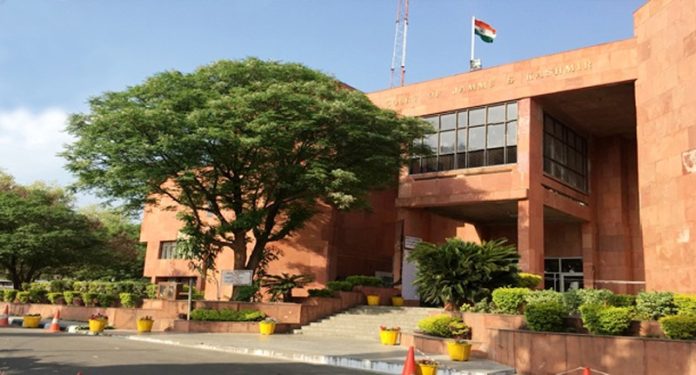Directs release of pending payment to contractor
Excelsior Correspondent
JAMMU, May 10: Underscoring the expansive jurisdiction of Article 226 of the Constitution of India, the High Court of Jammu & Kashmir and Ladakh has ruled that law doesn’t put any bar or any fetters on the High Court in respect of exercising its writ jurisdiction in contractual disputes with State and its authorities.
Allowing plea of a contractor seeking release of an admitted liability on the part of administration, Justice Wasim Sadiq Nargal observed, “law does not put any bar or any fetters on the High Court in respect of exercising its writ jurisdiction in contractual matters. There has been paradigm shift in the approach of the courts in exercise of its writ jurisdiction in the matters of contractual disputes with State and its authorities”.
The jurisdiction of the High Court while exercising the powers under Article 226 of the Constitution of India is not restricted only to the review of the administrative actions and executive decisions of the State and in the light of the extended applicability of the “doctrine of promissory estoppels” of which the whole object is to see that the Government strikes to its promise and abides by it, Justice Nargal said.
The High Court was dealing with a petition filed by a contractor Rehmatullah Naik seeking the release of outstanding payments amounting to Rs 20.74 lakh from the Government of Jammu and Kashmir. The petitioner had undertaken a road upgradation project as per a supplementary agreement that increased the contract cost. Despite completing the work satisfactorily, the petitioner faced delays in receiving the agreed payment.
The contentions between the petitioner and respondents were centred on whether the petitioner’s claim was time-barred and whether the supplementary agreement was valid. While the respondents cited alleged violations of General Financial Rules, the petitioner argued that the agreement was legally binding and the delay in payment was unjustifiable.
Citing the law laid down by Apex Court in Bhoruka Power Corporation Ltd. Versus State of Haryana and Others, High Court said, “it is a settled proposition of the law that after having laid down the standard for the judging its conduct, a public authority cannot deviate from the standards”. High Court reiterated the court’s role ensuring Governmental accountability and preventing unjust enrichment at the expense of contractors and emphasised that once a promise is made and relied upon, the Government must honor its commitment and failure to do so can lead to legal repercussions.
Follow the Daily Excelsior channel on WhatsApp
“There were a series of communications between the parties, which have not been denied by the respondents and, accordingly, it can safely be concluded that there was a binding contract between the parties and the respondents cannot escape from their liability of making the payment to the petitioner arising out of the binding contract”, High Court said.
Accordingly, High Court allowed the writ petition and directed the respondents to release a sum of Rs 20.74 lakh in favour of the petitioner within a period of six weeks from the date a copy of this order is made available to them.
“In case, the amount is not released in favour of the petitioner within the stipulated time period, in that eventuality, the outstanding amount, along with interest at the rate of 9%, shall be payable to the petitioner by the respondents, from the date of filing of the writ petition— 24.07.2023 and the interest component will be payable by the respondent/officer on whose count such delay occurs”, the High Court directed.


